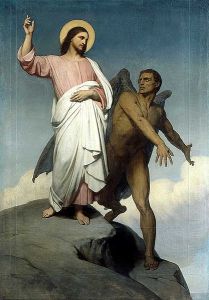

As an educator and as a casual observer of popular culture, I believe that our society is overly dependent on passive entertainment. We view more than we read. We assume more than analyze. Don’t get me wrong. If you’ve read very many of my posts in the past, you know that I love some of the entertainment that’s out there. My concern is the degree to which we are dependent on it.
In the biology courses which I teach, I emphasize the scientific method of thinking, its limits, and how this relates to our perception of reality. We currently have a problem with scientific literacy in America, but arguments which merely appear more scientific are given more widespread credibility. I call this faux intellectualism the “culture of the scientific.” It’s more a statement of style than of content.
Additionally, our emotions influence our perception of reality. We believe in things we want to be true. Conversely, we disbelieve things we don’t want to be true. From this perspective, truth is often perceived as inconvenient, but consider the alternative. Ignorance can hurt or even kill us, and denying the existence of something doesn’t prevent it from affecting us if it’s real.
Finally, there is what sociologists term the “social construction of reality.” We tend to believe what those whom we identify with believe or what the majority of people believe, and that can sometimes get us into trouble. Metaphorically, the blind can lead the blind. Truth is not established by majority vote, and history is replete with cases involving individuals who went against the status quo and were later vindicated.
I have described a cultural mash in which our shared perception of reality is affected by at least four factors: our desire for and orientation toward entertainment, a “culture of the scientific” among the scientifically illiterate, emotional preference, and the social construction of reality. Within this context, society has grown increasingly incredulous about the existence of spiritual beings and the occurrence of miracles. This has been accompanied by a general drift away from the tenets of Judaism and Christianity. Historically, the two most prominent lines of thought in the development of western civilization have been the Greco Roman and Judeo Christian traditions.




Ironically, western culture has shown an increased sympathy for Islam (with notable exceptions) and an increased interest in magic, paganism, and witchcraft even as it discards Judaism and Christianity as being irrelevant, superstitious, or worse. Please note what I am not saying. These are trends among diverse individuals who happen to exist in significant numbers. They are not the product of widespread, monolithic group think.

Okay. This is my teaser. I’m not entirely sure where I’m going with this, but I’ll pick it up again next week.